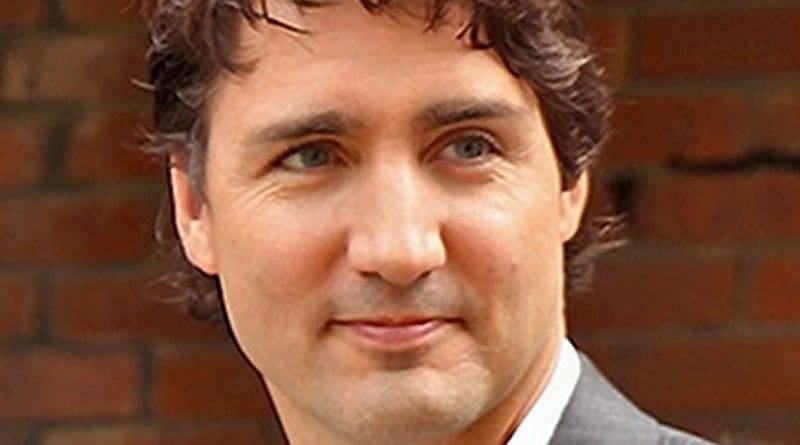Canada: Concerns Over Deteriorating Press Freedom – OpEd
Reporters Without Borders (RSF) has alerted Canada’s Prime Minister Justin Trudeau of its concerns regarding the recent deterioration of press freedom in the country in the following letter.
The Right Honourable Justin Trudeau, P.C., M.P.
Prime Minister of Canada
80 Wellington Street
Ottawa, ON, Canada, K1A 0A2
Paris, November 17, 2016
Dear Prime Minister,
Reporters Without Borders (RSF), an international organization that defends press freedom and access to information around the world, would like to draw your attention to its concerns about the recent deterioration of press freedom in Canada.
While Canada guarantees freedom of the press under its Constitution, current circumstances reveal serious violations of press freedom. There was much cause for concern under your predecessor Stephen Harper’s government which was considered a dark time for journalists. A serious lack of government transparency, rampant bureaucracy in executing Access to Information (ATI) requests, and the passage of controversial anti-terrorism law Bill C-51 are just a few examples of the restrictive environment that journalists had to operate in during the Harper administration.
Because of these restrictions, Canada fell 10 places on RSF’s World Press Freedom Index between 2015 and 2016 and now ranks 18th out of 180 countries. We are concerned that recent events will cause Canada’s ranking to fall even further in next year’s index.
Since before you became Canada’s current Prime Minister, you have strongly advocated for a “free media,” yet in the year since you were elected to office there have been multiple press freedom violations in the country.
In April, an Ontario judge ordered VICE News reporter Ben Makuch to hand over all communications between him and a source to the Royal Canadian Mounted Police, setting a dangerous precedent that could compromise journalistic independence and the protection of sources. In September, Journal de Montréal’s headquarters were searched and journalist Michaël Nguyen’s computer was seized after Quebec’s judicial counsel claimed that information he published was obtained illegally from their website. This “breach” of their online security was later debunked when a journalist from La Presse reported that he accessed the same documents without ever encountering any security measures. In October, Justin Brake, journalist and editor of The Independent learned he faces possible trespassing charges for his coverage of protests against the Muskrat Falls hydroelectric project in Labrador. And just several weeks ago, La Presse’s Patrick Lagacé revealed that he has been the subject of Montréal city police surveillance since the beginning of 2016. Days after his revelation, at least 6 other journalists learned that they had been the subject of Quebec provincial police surveillance in 2013.
These incidents have led to what can only be described as a crisis for press freedom in Canada. RSF, along with journalists and media defense organizations both local and international, have expressed their deep concern for the recent deterioration of the respect for journalists’ independence, the confidentiality of their sources, and their ability to freely do their job without fear of being surveilled, followed, or even arrested. The decline in press freedom has an equally serious effect on the public’s ability to keep informed about what their government is doing and thus infringes upon the people’s right to know.
As Canada’s Prime Minister, RSF asks you to
- take concrete steps to protect journalists’ sources from police surveillance and court orders
- make it clear to local and regional police officers across the country that covering a protest should not be equated with trespassing
- repeal Bill C-51, which is now under review and subject to public consultations until December 1. Any newly adopted anti-terrorism legislation must duly protect press freedom.
This controversial anti-terrorism legislation adopted in June 2015 is a serious threat to investigative journalism, protection of sources, public discourse and free expression online. It includes prison terms of up to 5 years for “advocating” or “promoting” terrorism, including “reckless” statements. It also gives authorities the power to take down online content deemed “terrorist propaganda.” And as far as privacy issues are concerned, the law allows various government institutions to share citizens’ personal information with security agencies if it is simply deemed “relevant” to national security. The events of the last 6 months serve as a preview of the future of press freedom under Bill C-51 if it remains on the books.
As one of the world’s strongest democracies, Canada should set a positive example for press freedom and access to information, not a negative one. That’s why RSF is asking you to right the ship and ensure that press freedom does not continue on this downward trend.
I thank you in advance, Prime Minister, for the careful attention you give to this letter.
Sincerely,
Christophe Deloire
RSF Secretary General
If you are a Canadian citizen and want your voice to be heard during the Bill C-51 consultations, please visit the website of our local partner Canadian Journalists For Free Expression (CJFE) : http://www.cjfe.org/billc51. Public consultation closes on December 1, 2016.

